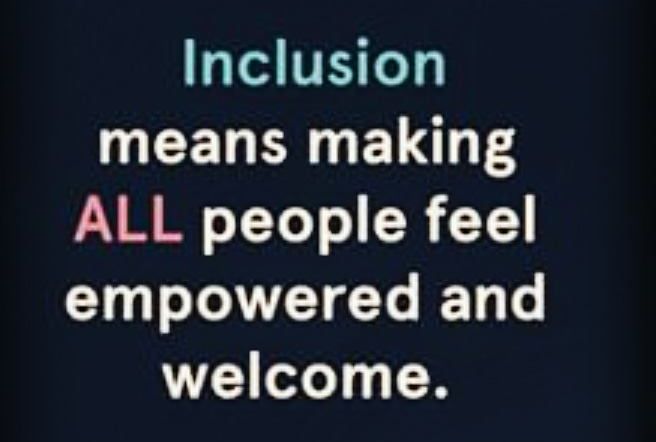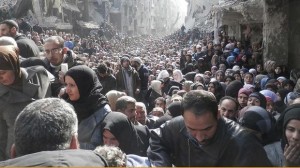As President Obama spoke these words in reference to Russia’s decision to ramp up their presence in the Crimea, “There will be costs,” we could not help but note this to be perhaps the understatement of the day.
Our assessment comes not necessarily through agreement with the US stance on the Ukraine matter, but rather in observation of the fact that the costs the Ukraine has before it now are staggering in both complexity and implementation. As the new government moves through its parliament to set the course for the future, the choice they make will come with costs to them.
Crimea has had a sense of autonomy prior to these developments in Kiev. A home for a Russian naval base, Crimea’s population is over 60% ethnic Russian. Many do not speak the Ukraine language, but hold roots to their history of when the Ukraine, and Crimea in particular, were part of the U.S.S.R. They do not wish any of this to change. They view the developments in Kiev as negative, and fear the changes will result in policies that will change their way of life against their will.
![United States President Barack Obama and Russian President Vladimir Putin walk to the G8 Summit dinner following their bilateral meeting in Ireland on 17 June 2013. Photo by Pete Souza [Public domain], via Wikimedia Commons](http://occupyworldwrites.org/wp-content/uploads/2014/03/Barack_Obama_and_Vladimir_Putin_walking_in_Ireland-300x221.jpg)
United States President Barack Obama and Russian President Vladimir Putin walk to the G8 Summit dinner following their bilateral meeting in Ireland on 17 June 2013. Photo by Pete Souza [Public domain], via Wikimedia Commons
Russia has always viewed the Crimea as “theirs” and has continued to hold this position since the 1994 Budapest Agreement they signed with the Ukraine. The Budapest Memorandum is a treaty concerning the nuclear disarmament of Ukraine and its security relationship with the US, the UK and Russia. In return for Ukraine giving up its nuclear weapons to Russia, the signatories agreed to respect Ukraine’s independence and sovereignty, among other things. Russia now views the protection of the Black Sea Fleet, their naval unit located in Crimea, as both a responsibility and a right. It is highly unlikely this attitude will change. They have now authorized military action in Ukraine, not limiting actions to the Crimea region.
Former Ukraine President Yanukovich has surfaced in a press conference from within Russia, stating that he has not relinquished power and is still the legitimate ruler of Ukraine. The international community has not responded to his claims, but he has turned to his friend, Putin, asking for Russian support in overthrowing the “bandits” that have seized control of the parliament in Kiev. Arrest warrants have been issued for both Yanukovich and his son, Oleksandr, by the Ukraine government after documents found trace nearly $67 billion in assets stolen from the country while in power.
At this time, assets in foreign banks have either already been frozen or in the process of being frozen, as the international community responds to these serious charges based on clear evidence. The Guardian reports this is “in response to a request from Kiev targeting the fortunes of up to 20 of the Yanukovych clique. Yanukovych’s family, his former prime minister and former chief of staff all have substantial properties, businesses, and bank accounts in Austria. The foreign ministry in Vienna said assets were being frozen. But the details were leaked to the Viennese press before being implemented, leaving it unclear whether the assets had already been shifted.”
Meanwhile, Ukraine is challenged with finding a way to move forward that allows acceptance by the international community as well as the diverse population within the country. Most observers, including the EU, are encouraging ties be made with the west, meaning the EU and the US. Crimea and Russia see ties to the east as the only correct path forward. Ukraine’s military has been placed on high alert and the new president has stated that military action from Russia would force the Ukraine to sever ties with them. Ukraine has appealed to NATO and the UN for assistance.
![Events in Kiev on 2-18-14. Photo By Mstyslav Chernov/Unframe/http://www.unframe.com/ (Own work) [CC-BY-SA-3.0 (http://creativecommons.org/licenses/by-sa/3.0)], via Wikimedia Commons](http://occupyworldwrites.org/wp-content/uploads/2014/03/1024px-Clashes_in_Kyiv_Ukraine._Events_of_February_18_2014-4-300x200.jpg)
Events in Kiev on 2-18-14. Photo By Mstyslav Chernov/Unframe/http://www.unframe.com/ (Own work) [CC-BY-SA-3.0], via Wikimedia Commons
We tend to agree with those who say it might be possible for the Ukraine government to accomplish ties to both, in the interest of maintaining the country’s unity and to stabilize the geopolitical climate in the region. This does not need to be an “either-or” decision.
We want to believe Russian President Vladimir Putin, who states his action are not a violation of any law or agreement but are being taken to bring calm to the Crimea at their request. Russian citizens and troops threatened in Ukraine (Crimea region), need armed forces’ protection, he claims. We also can not ignore the similarities in language and in action taken now to those taken prior to the war with Georgia not that long ago.




![Syrian Za'atri Refugee Camp. Photo by U.S. Department of State [Public domain], via Wikimedia Commons](http://occupyworldwrites.org/wp-content/uploads/2014/01/1024px-An_Aerial_View_of_the_Zaatri_Refugee_Camp-300x183.jpg)

![Image By Peter Fitzgerald (:Image:Ukraine regions map.svg) [GFDL (http://www.gnu.org/copyleft/fdl.html) or CC-BY-SA-3.0-2.5-2.0-1.0 (http://creativecommons.org/licenses/by-sa/3.0)], via Wikimedia Commons](http://occupyworldwrites.org/wp-content/uploads/2014/03/1024px-Ukraine_regions_map-300x203.png)
![United States President Barack Obama and Russian President Vladimir Putin walk to the G8 Summit dinner following their bilateral meeting in Ireland on 17 June 2013. Photo by Pete Souza [Public domain], via Wikimedia Commons](http://occupyworldwrites.org/wp-content/uploads/2014/03/Barack_Obama_and_Vladimir_Putin_walking_in_Ireland-300x221.jpg)
![Events in Kiev on 2-18-14. Photo By Mstyslav Chernov/Unframe/http://www.unframe.com/ (Own work) [CC-BY-SA-3.0 (http://creativecommons.org/licenses/by-sa/3.0)], via Wikimedia Commons](http://occupyworldwrites.org/wp-content/uploads/2014/03/1024px-Clashes_in_Kyiv_Ukraine._Events_of_February_18_2014-4-300x200.jpg)